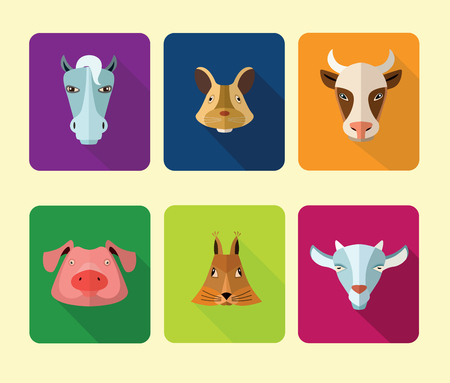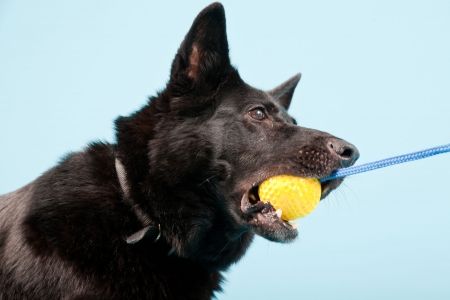1. Understanding the Unique Dietary Needs of Exotic Pets
Feeding exotic pets requires a deep understanding of their unique dietary needs. Unlike cats and dogs, which have widely available commercial pet food options, exotic pets like reptiles, birds, and small mammals often need specialized diets to stay healthy. Providing the right nutrition is crucial for their well-being and longevity.
Reptile Nutrition
Reptiles have diverse dietary needs depending on their species. Some are herbivores, some are carnivores, and others are omnivores. Understanding what your reptile eats in the wild can help you replicate a balanced diet in captivity.
| Reptile Type | Diet | Common Foods |
|---|---|---|
| Herbivores (e.g., Iguanas) | Plant-based | Leafy greens, fruits, vegetables |
| Carnivores (e.g., Snakes) | Meat-based | Mice, rats, insects |
| Omnivores (e.g., Bearded Dragons) | Mixed plant and protein | Insects, vegetables, fruits |
Bird Nutrition
Birds also have varied diets based on their species. Some birds thrive on seeds, while others require a mix of pellets, fresh fruits, and vegetables. A balanced diet helps prevent nutritional deficiencies that can lead to health problems.
| Bird Type | Diet | Common Foods |
|---|---|---|
| Granivores (e.g., Parrots) | Mainly seeds and grains | Pellets, seeds, nuts, fresh fruits |
| Nectivores (e.g., Hummingbirds) | Nectar-based | Nectar mixes, fruit juices |
| Omnivores (e.g., Crows) | A mix of plant and protein | Berries, insects, eggs |
Small Mammal Nutrition
Small mammals like rabbits, guinea pigs, and ferrets each have specific dietary requirements. Ensuring they get proper nutrition helps maintain their digestive health and prevents serious illnesses.
| Mammal Type | Diet | Common Foods |
|---|---|---|
| Herbivores (e.g., Rabbits) | Mainly plant-based | Hay, leafy greens, limited fruits |
| Carnivores (e.g., Ferrets) | Mainly meat-based | Raw or cooked meats, high-protein kibble |
| Omnivores (e.g., Hamsters) | A mix of plant and protein | Pellets, seeds, fresh produce |
The Importance of Proper Nutrition for Exotic Pets
A poor diet can lead to serious health issues such as metabolic bone disease in reptiles, obesity in birds, and digestive problems in small mammals. Offering a balanced diet tailored to your pet’s species ensures they live a long and healthy life.
Tips for Feeding Exotic Pets Correctly:
- Avoid processed human foods that may be harmful.
- Diversify their diet with fresh and natural ingredients.
- Research your pet’s specific dietary needs before making any changes.
- Supplement with vitamins or minerals if recommended by a vet.
- Mimic their natural eating habits as closely as possible.
By understanding the dietary needs of exotic pets and providing them with proper nutrition, you can help them thrive in captivity. The next sections will dive deeper into best feeding practices and common mistakes to avoid.
2. Best Feeding Practices for Optimal Health
Feeding exotic pets can be challenging, as their dietary needs vary significantly from traditional pets like cats and dogs. Providing a balanced diet, maintaining a proper feeding schedule, and sourcing high-quality food are essential for their health and longevity.
Guidelines for Providing Balanced Meals
A well-balanced diet ensures that exotic pets receive all the necessary nutrients to thrive. Here are some key points to consider:
- Know Their Dietary Classification: Identify whether your pet is an herbivore, carnivore, or omnivore to provide the appropriate food types.
- Variety is Key: Offer a mix of proteins, vegetables, fruits, and supplements as needed to prevent nutritional deficiencies.
- Avoid Processed Foods: Stick to fresh, natural foods whenever possible, as processed foods often contain harmful additives.
- Supplementation: Some exotic pets require additional vitamins and minerals. Consult with a veterinarian for the right supplements.
Proper Feeding Schedules
The frequency and timing of feeding depend on the species and age of your exotic pet. Below is a general guideline for feeding schedules based on common exotic pet types:
| Pet Type | Feeding Frequency | Additional Notes |
|---|---|---|
| Reptiles (e.g., Snakes) | Once every 5-7 days (adults), more frequently for juveniles | Avoid overfeeding to prevent obesity; ensure prey size is appropriate. |
| Small Mammals (e.g., Hedgehogs) | Daily | A balanced mix of protein, insects, and small portions of fruits/vegetables. |
| Tropical Birds (e.g., Parrots) | Twice daily | Diverse diet including pellets, seeds, fruits, and vegetables. |
| Aquatic Turtles | Every other day (adults), daily for juveniles | A mix of commercial turtle food, live prey, and leafy greens. |
| Arachnids (e.g., Tarantulas) | Once a week or less | Avoid handling after feeding; provide live insects. |
Sourcing High-Quality Food
The quality of food you provide directly impacts your pet’s health. Consider these tips when sourcing food:
- Select Reliable Suppliers: Purchase from reputable pet stores or breeders who specialize in exotic pet nutrition.
- Avoid Wild-Caught Prey: Wild insects and rodents may carry parasites or pesticides that can harm your pet.
- Use Organic When Possible: Organic produce reduces exposure to harmful chemicals found in conventionally grown fruits and vegetables.
- Store Food Properly: Keep dry food in airtight containers and refrigerate perishable items to maintain freshness.
The Importance of Hydration
Adequate hydration is just as crucial as proper nutrition. Exotic pets have varying water requirements depending on their species. Ensure fresh water is available at all times and consider misting enclosures for humidity-dependent pets like reptiles and amphibians.
A well-planned diet combined with proper feeding schedules and high-quality food sources will help keep your exotic pet healthy and thriving. By following these best practices, you can ensure they receive optimal nutrition tailored to their specific needs.

3. Common Feeding Mistakes and How to Avoid Them
Feeding exotic pets can be challenging, especially for new owners who may not fully understand their pet’s dietary needs. Unfortunately, common mistakes can lead to health issues or even shorten your pet’s lifespan. Below are some frequent feeding errors and how to avoid them.
Improper Portion Sizes
One of the biggest mistakes pet owners make is feeding their exotic pets too much or too little. Unlike cats and dogs, many exotic animals have very specific portion requirements based on their species, age, and activity level.
How to Avoid This Mistake:
- Research your pets dietary needs from reliable sources or consult an exotic animal veterinarian.
- Use a kitchen scale or measuring tools to provide accurate portion sizes.
- Monitor your pet’s weight regularly to ensure they are maintaining a healthy size.
Inadequate Nutrients
A common issue with feeding exotic pets is failing to provide a balanced diet. Many owners rely on commercial food alone, which may lack essential vitamins and minerals needed for optimal health.
How to Avoid This Mistake:
- Diversify your pet’s diet by including fresh foods like fruits, vegetables, or protein sources as recommended for their species.
- Supplement with vitamins and minerals if necessary (but only under veterinary guidance).
- Avoid feeding only one type of food; variety helps ensure all nutritional needs are met.
Feeding Harmful Foods
Certain foods that are safe for humans or other pets can be toxic to exotic animals. It’s crucial to know which foods should be avoided.
Common Harmful Foods for Exotic Pets:
| Pet Type | Toxic Foods |
|---|---|
| Reptiles | Avocado, onions, rhubarb |
| Birds | Caffeine, chocolate, alcohol |
| Rodents | Citrus fruits, raw beans, almonds |
| Aquatic Animals | Bread, processed meats |
How to Avoid This Mistake:
- Create a list of safe and unsafe foods specific to your pet’s species.
- If unsure about a food item, research before feeding it to your pet.
- Avoid giving table scraps unless you are certain they are safe.
4. The Importance of Hydration and Supplements
Proper hydration and the right supplements are essential for keeping exotic pets healthy. Unlike common household pets, exotic animals often have unique hydration and dietary needs that must be carefully managed to ensure their well-being.
The Role of Water in Exotic Pet Health
Water is critical for digestion, temperature regulation, and overall health. However, different species have different hydration requirements. Some reptiles absorb water through their skin, while others need frequent misting or a water bowl. Birds require fresh water daily, while amphibians need a humid environment to stay hydrated.
Hydration Methods for Different Exotic Pets
| Pet Type | Recommended Hydration Method |
|---|---|
| Reptiles (e.g., geckos, chameleons) | Misting, dripping systems, shallow water bowls |
| Birds (e.g., parrots, finches) | Fresh drinking water changed daily |
| Amphibians (e.g., frogs, salamanders) | High humidity levels, misting |
| Small Mammals (e.g., ferrets, hedgehogs) | Bottled or bowl water supply |
The Importance of Dietary Supplements
Exotic pets often require additional vitamins and minerals to prevent deficiencies. In the wild, they get these nutrients from varied diets that can be hard to replicate in captivity. Proper supplementation ensures they receive essential nutrients for strong bones, healthy skin, and overall longevity.
Common Supplements for Exotic Pets
| Nutrient | Benefits | Common Sources |
|---|---|---|
| Calcium | Prevents metabolic bone disease | Cuttlefish bone, calcium powder |
| Vitamin D3 | Aids calcium absorption | UVB lighting, dietary supplements |
| Probiotics | Supports digestive health | Specialty pet probiotics |
| Omega-3 Fatty Acids | Promotes healthy skin and coat | Fish oil supplements |
| Multivitamins | Covers general nutritional gaps | Commercial exotic pet vitamins |
How to Safely Introduce Supplements
Adding supplements should be done carefully to avoid over-supplementation. Always follow dosage instructions provided by veterinarians or reputable pet care guides. Some supplements can be sprinkled on food, while others may need to be dissolved in water or given as direct drops.
Tips for Supplementing Exotic Pets:
- Avoid over-supplementation—excessive vitamins can be harmful.
- Consult with a vet before introducing new supplements.
- Use high-quality products designed specifically for exotic pets.
- Monitor your pet’s reaction to new supplements and adjust as needed.
Providing proper hydration and the right dietary supplements is crucial for maintaining the health of exotic pets. By understanding their specific needs and using appropriate methods, you can help them live a longer and healthier life.
5. Safe and Unsafe Foods for Exotic Pets
Feeding exotic pets requires careful consideration, as some foods can be highly beneficial while others may be toxic or harmful. Below is a detailed guide to help pet owners make informed choices when selecting food for their exotic animals.
Safe Foods for Exotic Pets
Providing the right diet ensures your pet stays healthy and active. Here are some commonly safe foods for different types of exotic pets:
| Exotic Pet Type | Safe Foods |
|---|---|
| Reptiles (e.g., Bearded Dragons, Turtles) | Dark leafy greens, squash, bell peppers, insects (crickets, mealworms), small amounts of fruits (berries, mango) |
| Birds (e.g., Parrots, Canaries) | Fresh vegetables, seeds, nuts (unsalted), whole grains, cooked legumes |
| Rodents (e.g., Guinea Pigs, Hamsters) | Timothy hay, fresh vegetables (carrots, cucumbers), limited fruits (apples, strawberries) |
| Aquatic Pets (e.g., Axolotls, Frogs) | Bloodworms, brine shrimp, earthworms, high-quality pellets |
| Mammals (e.g., Sugar Gliders, Hedgehogs) | Cooked lean meats, mealworms, fresh fruits and vegetables in moderation |
Unsafe Foods for Exotic Pets
Certain foods can be toxic or cause serious health issues. Avoid feeding these items to your exotic pets:
| Toxic/Harmful Foods | Affected Exotic Pets | Potential Risks |
|---|---|---|
| Chocolate & Caffeine | Mammals, Birds | Toxic to nervous system, can cause seizures or death |
| Dairy Products | Mammals (except specific species), Reptiles | Difficult to digest; may cause diarrhea or bloating |
| Citrus Fruits | Certain Reptiles & Rodents | Acidic content may lead to digestive issues or mouth sores |
| Avoid Processed & Sugary Foods | Mammals, Birds, Reptiles | Poor nutrition value; can lead to obesity or diabetes-like conditions |
| Avoid Avocados & Onions/Garlic | Mammals & Birds | Toxic compounds that can cause organ damage or even fatal poisoning |
| Avoid Raw Meat with Bones (for Non-Carnivores) | Mammals, Rodents & Some Reptiles | Bacterial contamination risk; bones may cause choking or internal injury |
| Avoid Certain Nuts (e.g., Almonds) | Certain Rodents & Birds | Cyanide content in some nuts may be toxic in large amounts |
| Avoid Iceberg Lettuce & Spinach (for Some Reptiles) | Turtles & Lizards like Bearded Dragons | Poor nutritional value; oxalates can interfere with calcium absorption leading to metabolic bone disease (MBD) |
| Avoid Raw Eggs & Fish (for Many Mammals & Birds) | Mammals & Birds not adapted to raw diets | Bacterial infections like Salmonella; nutrient imbalances from enzyme inhibitors found in raw eggs |
Tips for Feeding Exotic Pets Safely
- Diversify Their Diet: Even safe foods should be given in a balanced way to prevent deficiencies.
- Avoid Human Junk Food: Processed foods contain additives and preservatives that are harmful.
- Bathe Fresh Produce: Always wash vegetables and fruits thoroughly to remove pesticides.
- No Seasonings or Additives: Never add salt, sugar, or spices to your pet’s food.
- Keeps Portions Appropriate: Overfeeding can lead to obesity and health issues.
Selecting the right foods is essential for the health of your exotic pet. By understanding what is safe and what should be avoided, you can ensure they receive optimal nutrition tailored to their needs.


